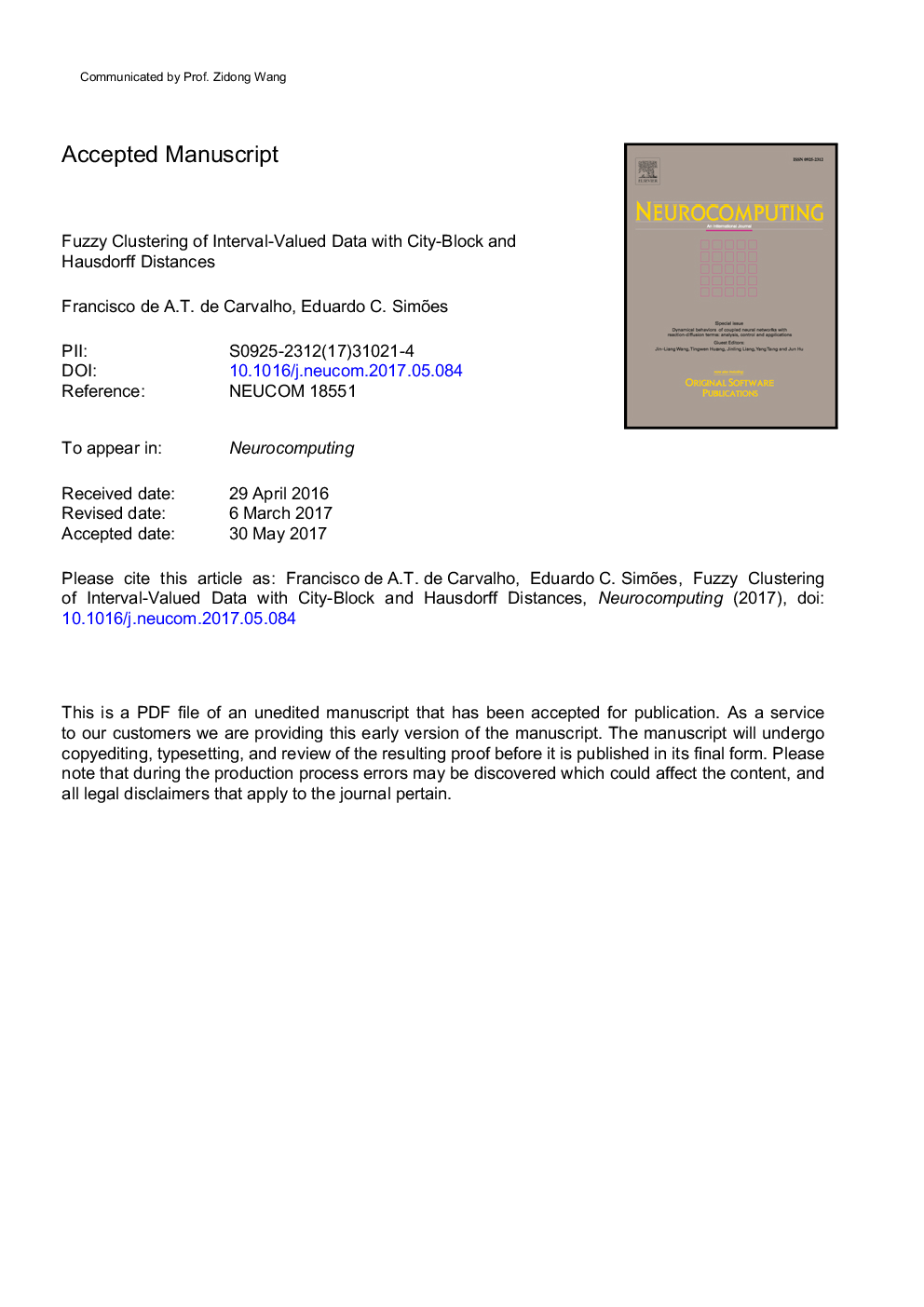| Article ID | Journal | Published Year | Pages | File Type |
|---|---|---|---|---|
| 4946974 | Neurocomputing | 2017 | 52 Pages |
Abstract
Interval-valued data arises in situations where it is needed to manage either the uncertainty related to measurements, or the variability inherent to a group rather than an individual. This paper proposes a fuzzy c-means clustering algorithm based on suitable adaptive City-Block and Hausdorff distances with the purpose to cluster interval-valued data. This fuzzy c-means clustering algorithm optimizes explicitly an objective function by alternating three steps aiming to compute the fuzzy cluster representatives, the fuzzy partition, as well as relevance weights for the interval-valued variables. Indeed, most often conventional fuzzy c-means clustering algorithms consider that all variables are equally important for the clustering task. However, in real situations, some variables may be more or less important or even irrelevant for clustering. Due to the use of adaptive City-Block and Hausdorff distances, the paper proposes a fuzzy c-means clustering algorithm that tackles this problem with a step where a relevance weight is automatically learned for each interval-valued variable. Additionally, various tools for the fuzzy partition and fuzzy cluster interpretation of interval-valued data provided by this algorithm is also presented. Experiments with suitable synthetic and real interval-valued datasets demonstrate the robustness and the usefulness of this fuzzy c-means clustering algorithm and the merit of the fuzzy partition and fuzzy cluster interpretation tools.
Keywords
Related Topics
Physical Sciences and Engineering
Computer Science
Artificial Intelligence
Authors
Francisco de A.T. de Carvalho, Eduardo C. Simões,
